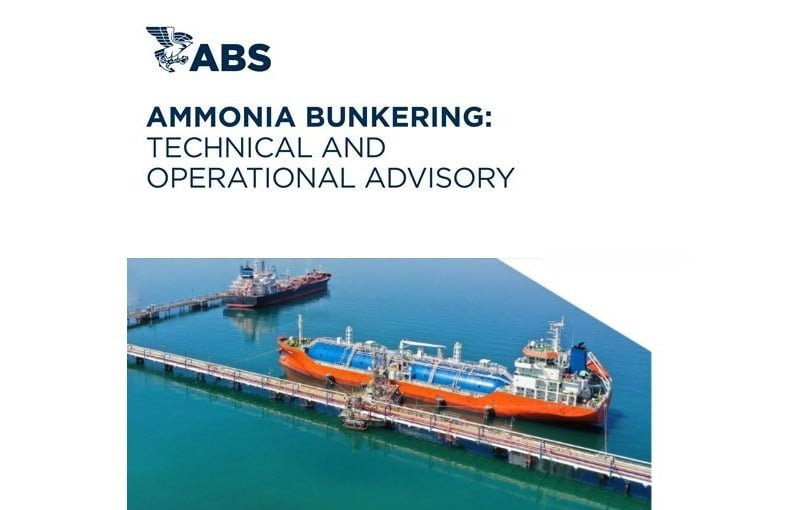American Bureau of Shipping (ABS) has released its “Ammonia Bunkering: Technical and Operational Advisory,” marking the industry’s first such guidance focused on ammonia bunkering.
The advisory considers the various aspects of bunkering ammonia as a marine fuel, aiming to provide the maritime industry with a comprehensive understanding of the challenges involved and the best practices to address them.
Ammonia is widely regarded as a leading alternative fuel candidate due to its potential for reducing greenhouse gas emissions. However, its adoption hinges on the development of safe bunkering capabilities, given its toxicity. Ensuring safe bunkering, whether by truck, ship, or land storage terminal, is crucial for its industry-wide adoption.
“ABS has been leading the development of ammonia as a marine fuel and this advisory is the next step in this process. We have built up extensive insight into the application of ammonia at sea, which we are now sharing with the industry. The advisory supports shipowners, operators, designers, shipyards, ammonia suppliers including terminals and port authorities with comprehensive guidance on the latest thinking around ammonia bunkering, which presents a specific set of new challenges for the industry,” said John McDonald, ABS President and COO.
The advisory encompasses ammonia bunkering design, operations, risk assessment and dispersion analysis, safety procedures, and training.
For more information and to download a copy of the ABS Ammonia Bunkering: Technical and Operational Advisory, click here. More details on ABS services for ammonia as a marine fuel are available here.
About ABS
ABS, or the American Bureau of Shipping, is a leading global provider of classification and technical advisory services to the marine and offshore industries. Committed to setting standards for safety and excellence, ABS works with shipowners, operators, and builders to ensure the safety, security, and environmental performance of vessels and offshore structures.
Source American Bureau of Shipping

